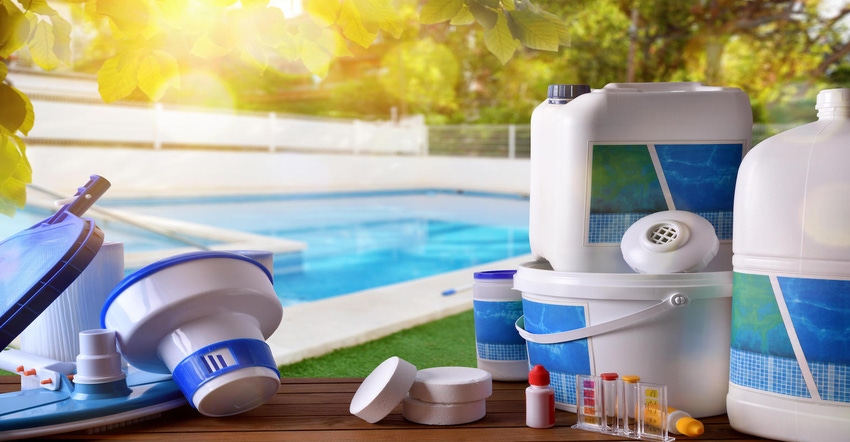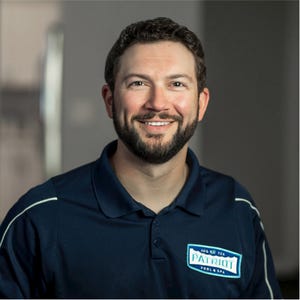Read on for Denbar's answers to our five key questions concerning industry mergers and acquisitions and navigating the market.

In January, National Pool Partners (NPP), the nation's largest multi-regional pool service company, announced key acquisitions in Arizona and Texas. Pool & Spa Professional (P&S Pro) sat down with NPP’s founding partner and president, Hal Denbar, to discuss these expansions, how the overall trend of mergers and acquisitions impacts pool professionals, and how to navigate today's market challenges.
 1— You’ve often stated that NPP is a people-first company. Where did that mindset originate, and how has it created career growth for pool service technicians?
1— You’ve often stated that NPP is a people-first company. Where did that mindset originate, and how has it created career growth for pool service technicians?

This people-first mindset has been intentional from the first conversations regarding forming NPP back in mid-2020.
For several years with my previous company (Patriot Pool & Spa), I wasn't able to be people first because it was a one-person company. Then, I realized that building a team had to be the focus instead. If it was just my name, we weren't going to get any better than we were. So adding people to the equation and allowing them to bring their strengths was essential to the growth of Patriot Pool & Spa.
Matt Stephenson, our now chairperson, and I talked about this concept when brainstorming the creation of NPP. I got intrigued when I could see the career path from pool cleaner to executive that's never existed before in our industry. When I first spoke with Augusto Titarelli, our CEO, it was really the first phone call from anybody from the pool industry with somebody from an executive background.
We noticed that in the small business atmosphere of a pool service company, whoever could work their way up to be the operations manager or general manager would camp out in that seat forever. Because that's the job everybody wants and because that was the top, they couldn’t go any further.
What happened in creating NPP is that we realized that it was on us to create a training curriculum and education to create more paths in the industry and more specialization.
We can now do all the cool things we wanted to do as small business owners forever. This mindset professionalizes and modernizes the trade, and it will hopefully attract talent to our industry that wouldn't be paying attention otherwise.
2— After an acquisition, how can new and old ownership come together to answer employee questions?
Right out of the gate, in every company acquisition announcement, we focus on how we will help the company scale and handle a larger volume of business. Every owner is scared to death and full of anxiety before announcing because telling their employees they have sold the company is an emotional rollercoaster. However, after the announcement, the overwhelming sentiment is excitement because we present what small business owners can't.
In addition to the career progression I already mentioned, this includes a comprehensive benefits package that I know I couldn't afford to provide my employees when I was a small business owner, no matter how much I wanted to.
There is also mobility around the country and flexibility that wouldn’t have been available otherwise.
We've had questions in these announcements like, “Wait, my grandma lives in Orlando. Does that mean if I go to Orlando I can keep my job and benefits?” And the answer is absolutely.
Additionally, there's the added regional corporate structure that's involved. Several people at Patriot have college degrees working in the technical aspects of pool service. Being part of a larger parent company allows them to stay in an industry they love while utilizing the skills they've already accrued that typically would pull people away from the industry.
3 — How do you think the trend of pool service company acquisitions is shaping the industry? What does it mean for acquired companies and those that aren't?
This trend will make a healthier industry and ecosystem on the pool service side. I know it will be scary to small and independent operators because I was one for so many years. But I honestly believe that when we look at other industries, they are more mature and healthier because of what happens when consolidations bring in large players.
These players invest more money in technology and training curriculum that benefits the industry. So there are all these things that the large companies must do to sustain their size that trickles down to other aspects of the industry.
If you look at pest control, which is a very analogous industry, you've got multibillion-dollar players, countless companies over $100 million in revenue, and then numerous companies that come down to a single person in a truck. Consolidation didn't eliminate those independent companies. If anything, it provided better training, resources and tools to allow companies to make a better living doing what they were doing.
4 — You’ve touched on how the industry is evolving and how pool service companies are changing in tandem. What other changes should owners watch?
The significant evolution that will be make or break for many companies is the current supply chain issue and accompanying inflation.
Small, independent operators might be overwhelmed by cleaning 80 pools weekly while managing repair and office work. It can be easy for them to get distracted and not notice when you get your ticket from distribution that your price went up 15% on a particular item. Before you know it, you're out of cash if you don't pass that cost along to the consumer.
Once you get behind in that cash management game because your prices and costs have inflated, and you haven't increased your pricing, it's over. Don't hesitate to raise prices—customers are willing to spend more money right now because they see prices going up with everything else. They expect it. As an industry, striking while the iron is hot is essential or else, we're the ones left behind.
5 — We've discussed the industry and employee perspective to your business philosophy; let's shift to the customer experience side. How can pool service companies build those connections?
At NPP, we've got a short-term and long-term plan. In the short term, our branches are independent in that the companies they’ve acquired are continuing to operate as they have been in name, function and process while we are perfecting our NPP “special sauce” in the background.
Long-term, we are looking to create an 80% universal best practice that we can pull from within the companies in our umbrella. We’re looking at Patriot Pools & Spa in Austin and asking ourselves, what do they do better than anybody else in the country? Okay, let's keep that in the special sauce. What about Aquaman Pools out in Scottsdale? What do they do best? Okay, let's keep that, and so on. We will have so many options to imagine the best possible experience for our customers and employees that we can make universal across our brands.
We're saving space to maintain around 20% of what made each company stand out on the initial purchase to keep the regional flavor and culture alive. So whether it's the way they celebrate holidays, provide bonuses or what have you, we want to focus on what attracted people to come work for that company initially and why customers chose to do business with them.
It’s a work in progress, and we have a disciplined approach to the companies we're looking to buy with specific qualifiers in terms of reputation, management and size. At this stage, we're so new that we can't compromise on how we take a company into the market and how we represent NPP. This mindset plays into how we will treat our customers because we're inheriting the best customer experience in those cities already. We can then add resources, training and everything else behind it.
Read more about:
material shortagesAbout the Author(s)
You May Also Like




